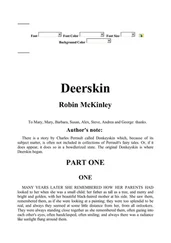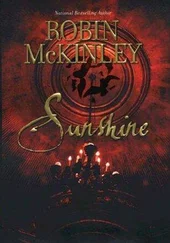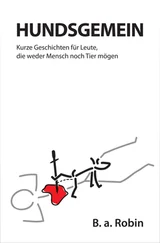Robin McKinley - Water
Здесь есть возможность читать онлайн «Robin McKinley - Water» весь текст электронной книги совершенно бесплатно (целиком полную версию без сокращений). В некоторых случаях можно слушать аудио, скачать через торрент в формате fb2 и присутствует краткое содержание. Год выпуска: 2002, ISBN: 2002, Издательство: Firebird, Жанр: Старинная литература, на английском языке. Описание произведения, (предисловие) а так же отзывы посетителей доступны на портале библиотеки ЛибКат.
- Название:Water
- Автор:
- Издательство:Firebird
- Жанр:
- Год:2002
- ISBN:9780142402443
- Рейтинг книги:4 / 5. Голосов: 1
-
Избранное:Добавить в избранное
- Отзывы:
-
Ваша оценка:
- 80
- 1
- 2
- 3
- 4
- 5
Water: краткое содержание, описание и аннотация
Предлагаем к чтению аннотацию, описание, краткое содержание или предисловие (зависит от того, что написал сам автор книги «Water»). Если вы не нашли необходимую информацию о книге — напишите в комментариях, мы постараемся отыскать её.
Water — читать онлайн бесплатно полную книгу (весь текст) целиком
Ниже представлен текст книги, разбитый по страницам. Система сохранения места последней прочитанной страницы, позволяет с удобством читать онлайн бесплатно книгу «Water», без необходимости каждый раз заново искать на чём Вы остановились. Поставьте закладку, и сможете в любой момент перейти на страницу, на которой закончили чтение.
Интервал:
Закладка:
That autumn there was a heaviness to the air, and it smelled of rain and earth and wildness even on days when the sun shone. Hetta usually left as much as she could standing over the winter, to give shelter to Ruth’s bugs and the birds and hedgehogs that ate them, but this year she brought the last tomatoes and squashes indoors early (where, denied the wet cellar, she balanced them on piles of timber in the parlour), and she cut back and tied in and staked everything that was left. Even with the walls protecting it, the wind curled in here, flinging other people’s tiles at her runner-bean teepees and stripping and shredding the fleece that protected the brassicas. Sometimes she stopped and listened, as if the whistle of the wind was about to tell her something. Sometimes at sunset, when there was another storm coming, the sky reminded her of her desert. But she didn’t dare stop long or often, even in the garden; her mother’s bedroom window overlooked it, and the sight of Hetta standing still invariably made her hungry. She would open her window and call down to Hetta that she just felt she might eat a little something if Hetta would make it up nice the way she always did and bring it to her.
When the meteorologists began predicting the big storm on its way, the family gathered round the TV set as if the weather report had become a daily installment of a favourite soap opera. Her father snorted; he hated experts in clean business suits telling him things he didn’t know. But he didn’t protest when the TV was turned on early and he didn’t declare the forecast rubbish, and he told Hetta to do her weekly shop early, “just in case.”
Two days later the sky went green-yellow, grey-purple; soon, sighed the prickle of wind against her skin, and for a moment, leaning on her hoe, the sky was some other sky, and the smooth wooden handle in her hands felt gritty, as if sticky with sand. Her fingers, puzzled, rolled it against her palm, and she blinked, and the world seemed to blink with her, and she was again standing in the back garden of the house where three generations of her father’s kin had lived, and there was a storm coming.
When the storm came in the deep night, Hetta was asleep. She knew she was asleep, and yet she knew when the storm wind picked her up . . . no, it did not pick her up, it plunged her down, forced her down, down into darkness and roaring and a great weight against her chest, like a huge hand pressing her into. . . .
She was drowning in sand. It wasn’t at all as she’d imagined it, a peaceful ending, a giving up: she did not want to die, and what was happening hurt. She gasped and choked, nearly fainting, and the sand bit into her skin, sharp as teeth. She could feel the tiny innumerable grains hissing over her, offering no apparent resistance as she beat at them, pouring through her fingers, down her body, into her eyes and mouth, the unimaginable multitudes of them covering her till they weighed as heavy as boulders, a river, an avalanche. . . .
Where were the others? Had they set out knowing a storm was on the way? Even in this area a storm this severe gave some warning. . . .
In this area? Where was she? There was nothing to tell her—nothing but sand and wind roar and darkness. And . . . who were they? She could not remember—she would not have set out alone—even a guided party had to take care—in the last few years the storms had grown more violent and less predictable—parties rarely went mounted any more—she—remembered—
Perhaps she slept; perhaps she fainted. But there were hands upon her—hands? Had her party found her again? She tried to struggle, or to cooperate. The hands helped her up, held her up, from her wind-battered, sand-imprisoned crouch. The wind still shouted, and she could see nothing; but the hands arranged the veil over her face and she could breathe a little more easily, and this gave her strength. When the hands lifted her so that one of her arms could be pulled around a set of invisible shoulders, and one of the hands gripped her round her waist, she could walk, staggering, led by her rescuer.
For some time she concentrated on breathing, on breathing and keeping her feet under her, tasks requiring her full attention. But her arm, held round the shoulders, began to ache; and the ache began to penetrate her brain, and her brain began to remember that it didn’t usually have to occupy itself with negotiating breathing and walking. . . .
It was still dark, and the wind still howled, and there was still sand in the heaving air, but it pattered against her now, it no longer dragged at and cut her. She thought, The storm is still going on all round us, but it is not reaching us somehow. She had an absurd image that they—her unknown rescuer and herself—were walking in a tiny rolling cup of sand that was always shallow to their feet just a footstep’s distance before and behind them, with a close-fitting lid of almost quiet, almost sandless air tucked over them.
When the hand clutching her wrist let go, she grabbed the shoulder and missed, for her hand had gone numb; but the hand round her waist held her. She steadied herself, and the second hand let go, but only long enough to find her hand, and hold it firmly—As if I might run off into the sandstorm again, she thought, distantly amused. She looked toward the hand, the shoulders—and now she could see a human outline, but the face was turned away from her, the free hand groping for something in front of it.
She blinked, trying to understand where the light to see came from. She slowly worked out that the hand was more visible than the rest of the body it was attached to; and she had just realised that they seemed to be standing in front of a huge, rough, slightly glowing—wall? Cliff? For it seemed to loom over them; she guessed at something like a ledge or half-roof high above them—when the fingers stiffened and the hand shook itself up in what seemed like a gesture of command—and the wall before them became a door, and folded back into itself. Light fell out, and pooled in the sand at their feet, outlining tiny pits and hummocks in shadows.
“Quickly,” said a voice. “I am almost as tired as you, and Geljdreth does not like to be cheated of his victims.”
She just managed to comprehend that the words were for her, and she stepped through the door unaided. The hand that was holding hers loosed her, the figure followed her, and this time she heard another word, half-shouted, and she turned in time to see the same stiff-fingered jerk of the hand that had appeared to open the door: it slammed shut on a gust of sand like a sword-stroke. The furious sand slashed into her legs and she stumbled and cried out: the hands saved her again, catching her above the elbows. She put her hands out unthinkingly, and felt collarbones under her hands, and warm breath on her wrists.
“Forgive me,” she said, and the absurdity of it caught at her, but she was afraid to laugh, as if once she started, she might not be able to stop.
“Forgive?” said the figure. “It is I who must ask you to forgive me. I should have seen you before; I am a Watcher, and this is my place, and Kalarsham is evil-tempered lately and lets Geljdreth do as he likes. But it was as if you were suddenly there, from nowhere. Rather like this storm. A storm like this usually gives warning, even here.”
She remembered her first thought when she woke up—if indeed any of this was waking —Even in this area a storm this severe gave some warning. “Where—where am I?” she said.
The figure had pulled the veiling down from its face, and pushed the hood back from its head. He was clean-shaven, dark-skinned, almost mahogany in the yellow light of the stony room where they stood, black-haired; she could not see if his eyes were brown or black. “Where did you come from?” he said, not as if he were ignoring her question but as if it had been rhetorical and required no answer. “You must have set out from Chinilar, what, three or four weeks ago? And then come on from Thaar? What I don’t understand is what you were doing alone. You had lost whatever kit and company you came with before I found you—I am sorry—but there wasn’t even a pack animal with you. I may have been careless”—his voice sounded strained, as if he were not used to finding himself careless—“but I would have noticed, even if it had been too late.”
Читать дальшеИнтервал:
Закладка:
Похожие книги на «Water»
Представляем Вашему вниманию похожие книги на «Water» списком для выбора. Мы отобрали схожую по названию и смыслу литературу в надежде предоставить читателям больше вариантов отыскать новые, интересные, ещё непрочитанные произведения.
Обсуждение, отзывы о книге «Water» и просто собственные мнения читателей. Оставьте ваши комментарии, напишите, что Вы думаете о произведении, его смысле или главных героях. Укажите что конкретно понравилось, а что нет, и почему Вы так считаете.












